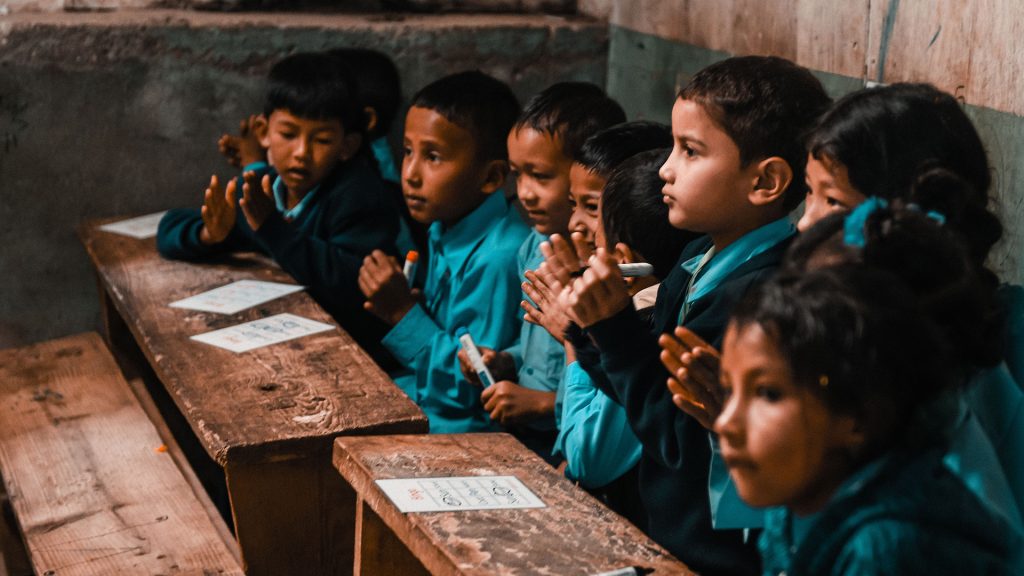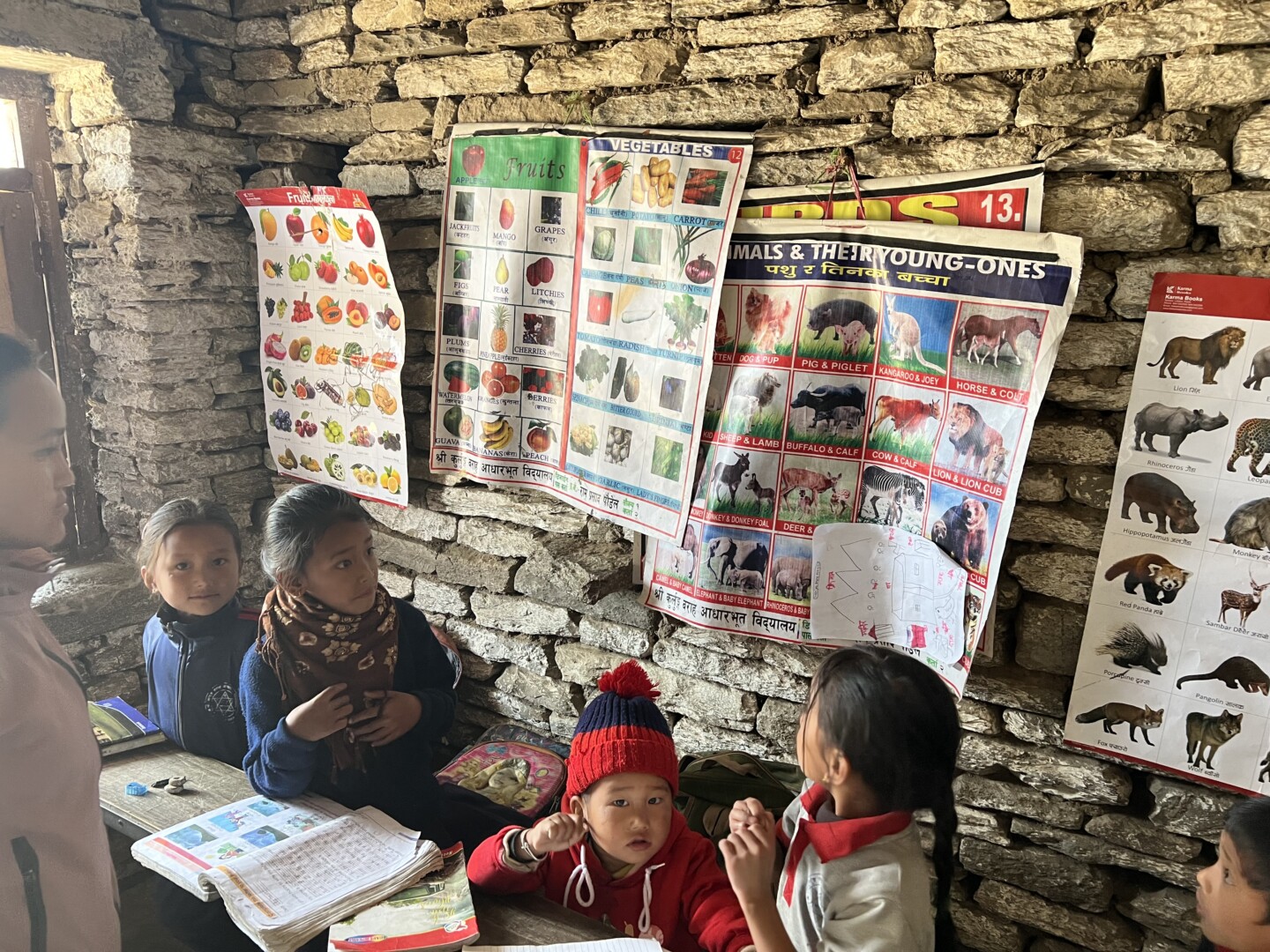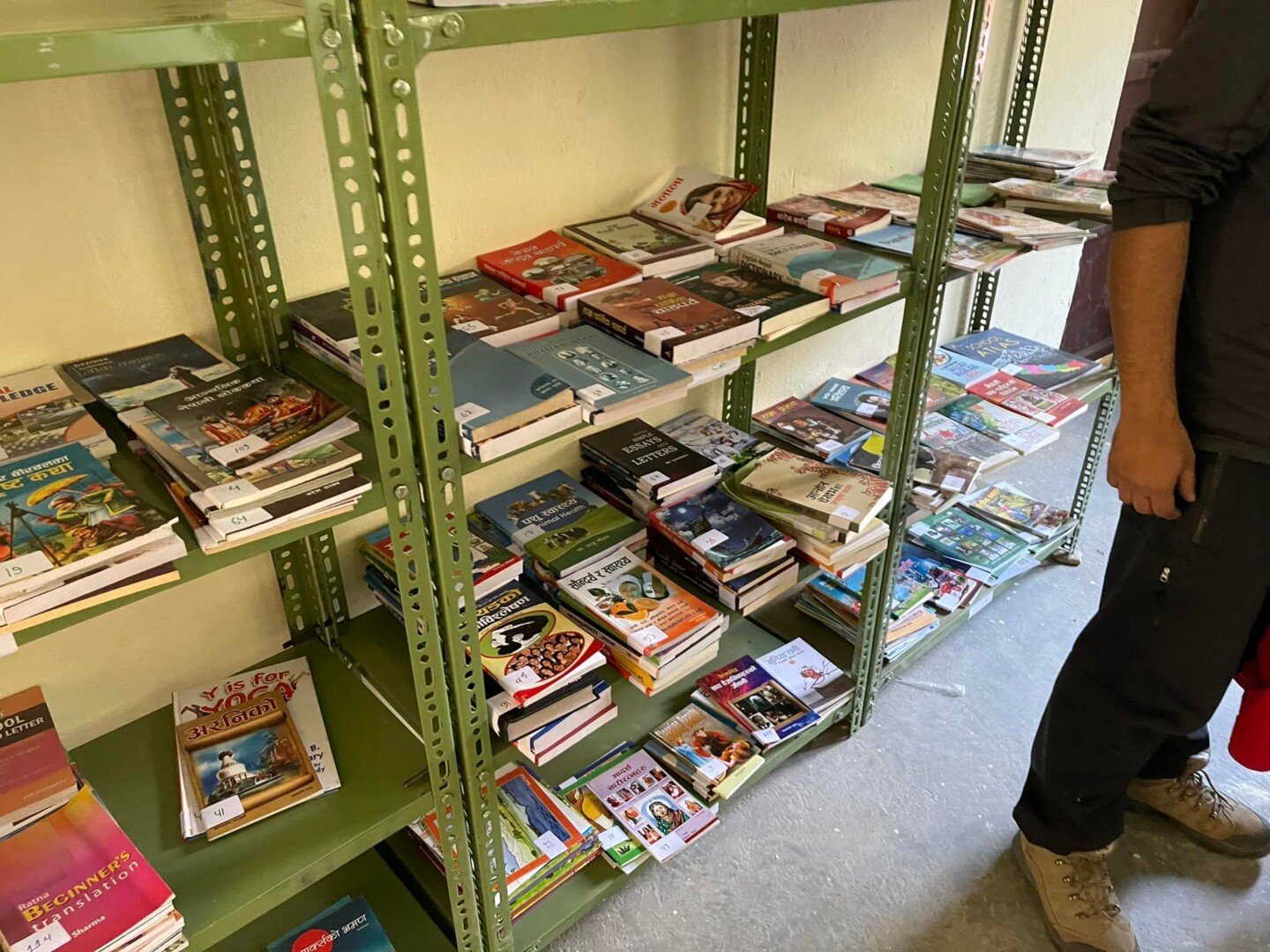
In the wake of the devastating 2015 Nepalese Earthquake, The Juniper Trust has been dedicated to bringing hope and support to the remote and vulnerable mountain communities of the Sindhupalchok district. Unfortunately, disaster brought a great disparity in the allocation of funds to the region. The popular areas along the Everest trek received most of the aid, leaving the poverty-stricken and less frequented areas in the south in dire need of help. Over the past seven years, The Juniper Trust has been a beacon of hope for the Sindhupalchok district. We have assisted in rebuilding twenty schools close to the epicentre, between Jiri and Lukla in the gateway to the Solu Khumbu, providing essential school equipment and uniforms.
The reconstruction and funding of schools has brought hope to the region and provided a more robust platform for the delivery of education, even for the poorest and most vulnerable children who could not afford uniforms, giving them the opportunity to receive an education that would have otherwise been impossible.


However, our work is far from complete. Two major challenges still exist. Firstly, teachers currently lack the adequate training to deliver the desired calibre of lessons from both a pedagogic and content-based standpoint, especially in early years learning, spoken English, and practical science. Secondly, the schools are in dire need of essential equipment for delivering quality lessons, with the lack of access to an adequate library being a primary concern.
Our Nepal Quality Schools Project aims to address these constraints. In November 2021, The Juniper Trust launched this project, with the intention of providing teacher training, creating well-stocked and diverse libraries, and furnishing schools with the necessary equipment for delivering the highest possible level of education. Ten schools will take part in a two-year teacher training program: Buddha Kinja, Uma Kunda, Janassewa, Nimuna, Saraswati, Siruwa, Vidhyadatri, Rawa Dolu. Maili and Shree Rajuana Primary School. Construction of a central library is currently underway at the Uma Kunda school, which will be shared with the schools participating in this project.



The teacher training program involves an initial assessment of the schools by trainers to establish areas for improvement, followed by a one-day conference for head teachers to establish good management and policy protocol. Finally, a clear and executable program for Nepali and English teachers will be created, providing pedagogic tactics to deliver clear and applicable education in the following subject areas: drama, use of the library, oral work and creativity, maths, languages, science, art and crafts, sport, health, and first aid.
The project’s aim is to ensure that all children, including marginalized groups, are taught in a friendly and supportive environment, where they can enjoy coming to school and acquire skills, knowledge, and understanding through careful instruction, demonstration, discussion, and practical activities. This will be achieved by working respectfully and symbiotically with individual communities, tailoring our approach to their specific needs, and providing them with the tools to create and shape a better sustainable future for themselves. We firmly believe that a good education is a ladder to a future full of possibilities and opportunities for every single villager.
30 Wordsworth Street
Penrith, Cumbria
CA11 7QY, United Kingdom
Registered Charity Number: 1053356